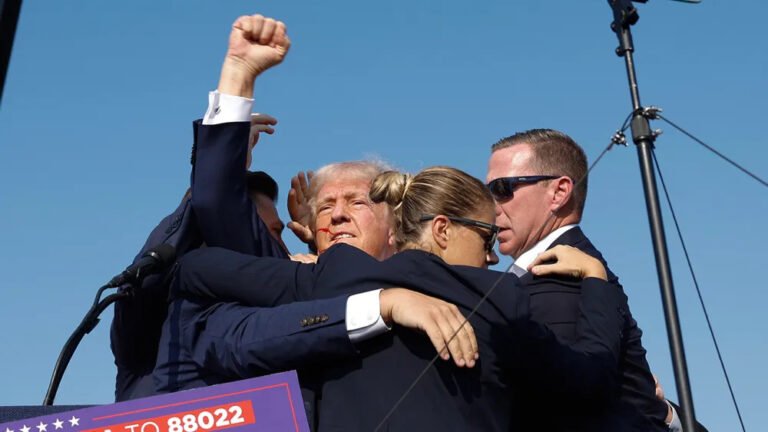The Debate Over Gun Control in America: What You Need to Know
Gun control debate remains one of the most hotly discusions and polarizing issues in American politics.
With a history deeply intertwined with the nation’s founding, the Second Amendment, and contemporary societal challenges. The discourse surrounding gun control continues to evoke strong emotions and divergent viewpoints.
In this comprehensive article, we will delve into the current events and legislative battles surrounding gun control. We will provide historical context, outline key arguments from both sides, and explore potential policy changes.
Whatever your stand, understanding the multifaceted dimensions of this issue is crucial for informed civic engagement.
Lear more about Gun control from our book list, just for you
Historical Context of Gun Control in America
The Second Amendment
The foundation of the gun control debate in the United States lies in the Second Amendment of the Constitution, ratified in 1791, which states:
“A well-regulated Militia, being necessary to the security of a free State, the right of the people to keep and bear Arms, shall not be infringed.”
This amendment has been the cornerstone of American gun rights, with interpretations varying widely over the centuries. Early American history saw the necessity of militias and the frontier lifestyle, where firearms were integral to both survival and defense.
Early Regulations
Despite the Second Amendment, there were instances of gun regulation in early American history. For example, the 1934 National Firearms Act (NFA) was one of the first major federal laws regulating firearms, in response to gang violence during the Prohibition era. The NFA imposed taxes and regulations on the sale and ownership of machine guns, short-barreled rifles, and shotguns.
Modern Legislation
The Gun Control Act of 1968, enacted after the assassinations of Martin Luther King Jr. and Robert F. Kennedy, aimed to regulate the firearms industry and firearm owners. It established categories of prohibited individuals, such as felons and minors, and introduced federal licensing requirements for firearm dealers.
The Brady Handgun Violence Prevention Act of 1993 further strengthened gun control by mandating background checks for firearm purchases from licensed dealers and establishing the National Instant Criminal Background Check System (NICS).
Current Events and Legislative Battles on Gun Control
Recent Mass Shootings
Mass shootings have become a tragic and recurring event in the United States, often reigniting the gun control debate.
High-profile incidents such as:
- The Sandy Hook Elementary School shooting in 2012,
- The Las Vegas concert shooting in 2017,
- And the Marjory Stoneman Douglas High School shooting in 2018.
have led to renewed calls for stricter gun laws.
Legislative Responses
State-Level Actions
In response to mass shootings, several states have enacted stricter gun control measures. California has the strictest gun laws in the country, including an assault weapons ban, mandatory background checks, and a 10-day waiting period for firearm purchases. New York’s SAFE Act, passed in 2013, expanded the state’s ban on assault weapons and increased background check requirements.
Federal-Level Proposals
At the federal level, proposals for gun control legislation have faced significant challenges due to political polarization. Key legislative efforts include:
- Universal Background Checks: Proposals to require background checks for all gun sales, including private transactions and gun show sales, have gained support but face opposition from gun rights advocates who argue it infringes on individual freedoms.
- Assault Weapons Ban: Renewing the 1994 Federal Assault Weapons Ban, which expired in 2004, has been a contentious issue. Proponents argue it would reduce the availability of high-capacity firearms used in mass shootings, while opponents claim it would infringe on Second Amendment rights.
- Red Flag Laws: These laws allow for the temporary removal of firearms from individuals deemed a threat to themselves or others. While several states have enacted red flag laws, a federal version has been proposed but not yet passed.
Key Arguments from Both Sides in Gun Control
Pro-Gun Control
- Public Safety: Advocates argue that stricter gun laws are necessary to protect public safety and reduce gun violence. They point to studies showing that countries with stricter gun laws have lower rates of gun-related deaths.
- Preventing Mass Shootings: Proponents believe that measures such as universal background checks and assault weapons bans could prevent mass shootings by limiting access to high-capacity firearms.
- Reducing Gun Homicides and Suicides: Gun control supporters highlight the correlation between access to firearms and higher rates of gun homicides and suicides. They argue that restricting access to guns could reduce these incidents.
- Closing Legal Loopholes: Advocates call for closing loopholes in existing laws, such as the “gun show loophole” and the “Charleston loophole,” which allow certain individuals to obtain firearms without undergoing background checks.
Pro-Gun Rights
- Second Amendment Rights: Although Gun rights advocates emphasize the constitutional right to keep and bear arms as enshrined in the Second Amendment. They argue that this right is fundamental to individual freedom and self-defense.
- Self-Defense: Proponents assert that firearms are essential for self-defense and that law-abiding citizens should have the right to protect themselves and their families.
- Ineffectiveness of Gun Control: Critics of gun control argue that stricter laws would not effectively reduce gun violence, as criminals would still find ways to obtain firearms illegally. They cite studies suggesting that gun control measures have minimal impact on crime rates.
- Slippery Slope: Some gun rights supporters believe that any form of gun control could lead to a gradual erosion of Second Amendment rights and eventual confiscation of firearms.
Gun Control debate: Potential Policy Changes
Stricter Background Checks
Expanding background checks to cover all gun sales, including private transactions and gun shows, is a policy change with broad public support. Implementing universal background checks could help prevent firearms from falling into the hands of prohibited individuals, such as felons and those with mental health issues.
Assault Weapons Ban
Reinstating the federal ban on assault weapons is another potential policy change. Supporters argue that limiting access to high-capacity firearms could reduce the lethality of mass shootings. However, this proposal faces significant opposition from gun rights groups and some lawmakers.
Red Flag Laws
Implementing red flag laws at the federal level could allow law enforcement and family members to petition for the temporary removal of firearms from individuals deemed a threat. These laws aim to prevent potential acts of violence while balancing due process rights.
Enhanced Mental Health Services
Addressing mental health issues is a critical component of the gun control debate. Increasing funding for mental health services and ensuring that individuals with mental health conditions receive appropriate treatment could help reduce the risk of gun violence.
Safe Storage Requirements
Mandating safe storage practices for firearms, such as requiring gun owners to store their weapons in locked containers or use trigger locks, could prevent accidental shootings and unauthorized access to firearms, particularly by children.
Limiting High-Capacity Magazines
Moreover, proposals to limit the capacity of firearm magazines to a certain number of rounds aim to reduce the potential for mass casualties in shooting incidents. Supporters argue that restricting magazine capacity could slow down shooters and provide opportunities for intervention.
Strengthening Law Enforcement
Enhancing law enforcement capabilities to track and prevent illegal gun trafficking is another potential policy change. This includes improving data sharing between federal and state agencies and increasing penalties for gun trafficking offenses.
Conclusion
However, the debate over gun control in America is complex and multifaceted, reflecting deep-seated beliefs about individual rights, public safety, and the role of government. Understanding the historical context, current legislative battles, and key arguments from both sides is essential for informed civic engagement. As the nation grapples with ongoing gun violence and mass shootings, finding common ground and implementing effective policies will require careful consideration of all perspectives and a commitment to protecting both public safety and constitutional rights.
BIBLIOGRAPHY
- Kleck, Gary, and Tomislav Kovandzic. “City-level characteristics and individual handgun ownership: Effects of collective security.” Journal of Quantitative Criminology 25.2 (2009): 252-271.
- This study explores the relationship between city-level characteristics and individual handgun ownership, offering insights into the factors that influence gun ownership rates.
- Cook, Philip J., and Jens Ludwig. “The social costs of gun ownership.” Journal of Public Economics 90.2 (2006): 379-391.
- This paper examines the broader social costs associated with gun ownership, including the impact on public health and safety.
- Ludwig, Jens, and Philip J. Cook. “Homicide and suicide rates associated with implementation of the Brady Handgun Violence Prevention Act.” JAMA 284.5 (2000): 585-591.
- This article analyzes the effects of the Brady Handgun Violence Prevention Act on homicide and suicide rates, providing important data on the efficacy of gun control measures.
- Webster, Daniel W., et al. “Association between youth-focused firearm laws and youth suicides.” JAMA 292.5 (2004): 594-601.
- This study investigates the relationship between firearm laws targeting youth and the rates of youth suicides, highlighting the impact of specific regulations.









